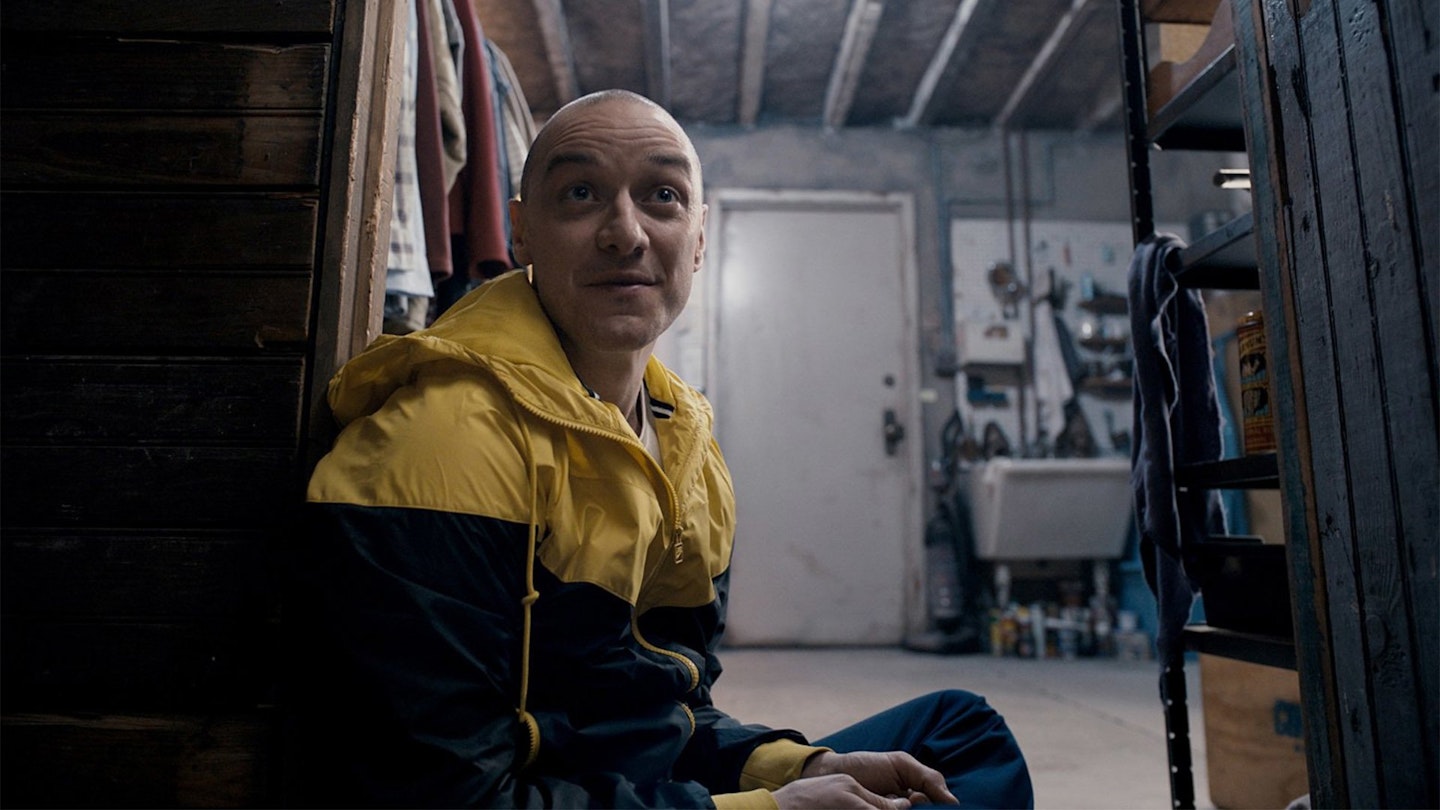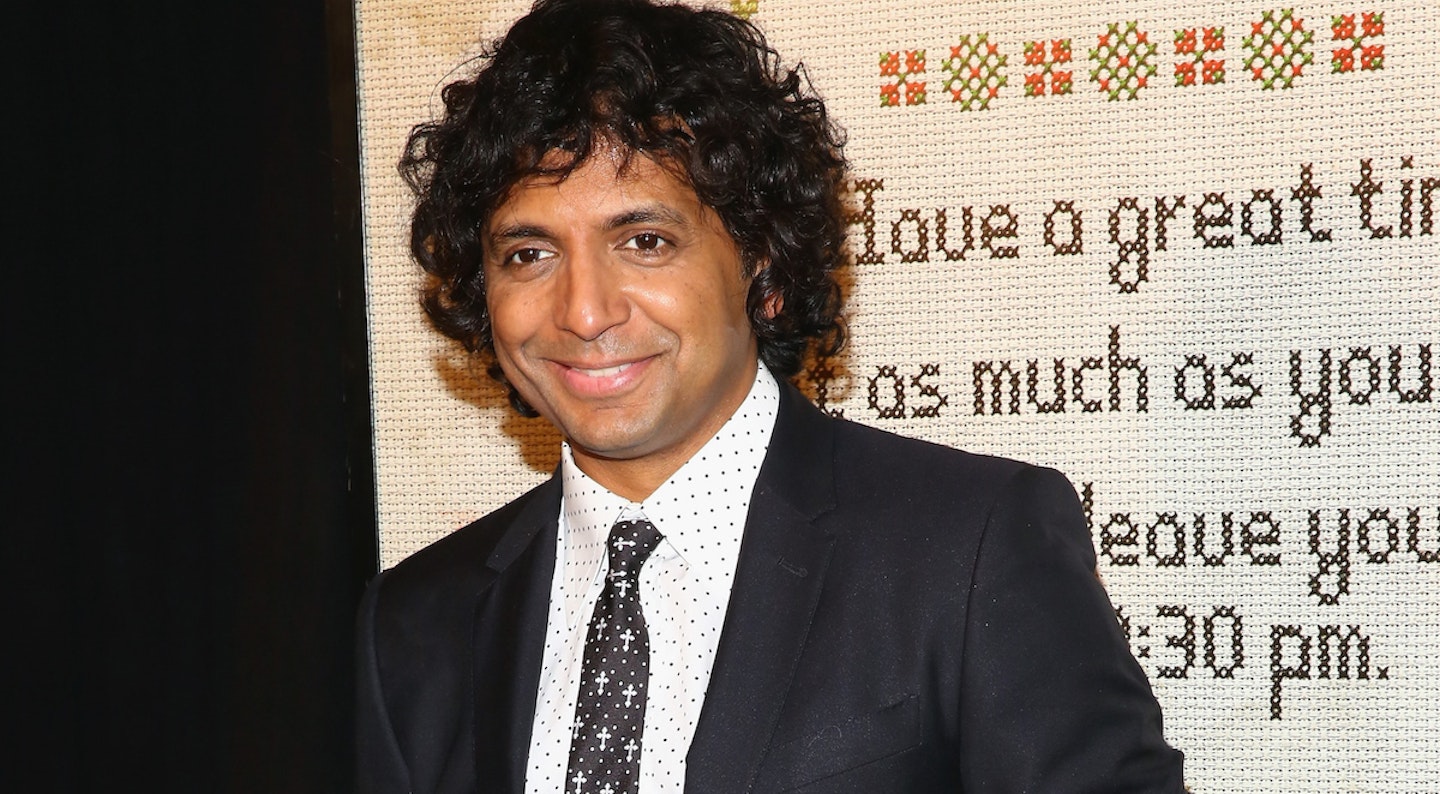
On the surface, M. Night Shyamalan’s latest movie, Split, is a thriller about a disturbed man named Kevin (James McAvoy) who kidnaps three young girls and holds them prisoner. Gradually, they realise that Kevin suffers from DID – Disassociative Identity Disorder – and is host to 23 different personalities. Some are good, some… not so good. And a 24th, known only as The Beast, might be the worst yet.
It’s more than that, though. It represents a further upward curve for Shyamalan after a few years of disappointing movies, it’s his biggest hit in years (it opened to $40 million in the States over the weekend), and it’s a tantalising glimpse at what might still be to come from the director.
We spoke to Shyamalan about the movie when he came to London last week, and we’re presenting it in a very particular way for reasons that will become clear. The first half of the interview is relatively spoiler-free. The second half discusses head-on the film’s ending, and what it means for the future. Do not read that if you haven’t seen Split.
Split has this phenomenal central performance at its heart from James McAvoy. When did you cast him?
I’d never met James. I only knew him through a handful of his most famous parts, and I was a huge admirer of his elegance. He also seemed to be this leading man who just wanted to act. There was a humility about him. I knew he did stage acting a lot. That was important to me, that he have stagecraft. Initially when I was looking at men who could play this, it’s a very small list. Who can play a child? Who can play a woman? Who can play the physicality? Just asking those questions, it’s very difficult to find somebody. He wasn’t available initially and I don’t remember what movie went away, but they called and said he’s available.
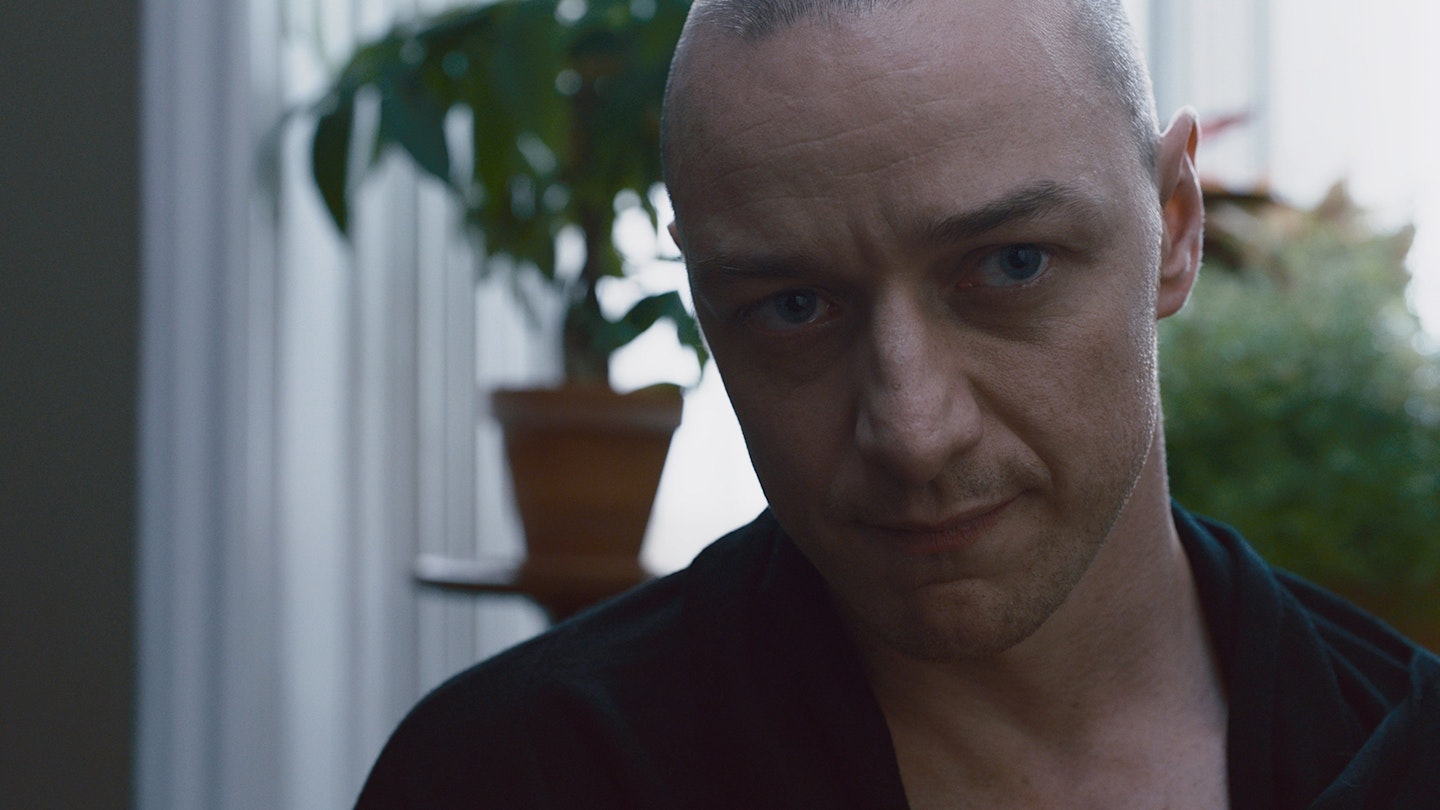
He takes risks as an actor. Filth, Trance.
I feel he’s the most courageous actor. When you get to that skill level of acting, I understand actors’ tack towards biopics. They want to go for it, they want to be dangerous but they want the patina of protection which is, ‘I was acting crazy because he was’. It takes a very different courage to really go for it in an original movie. Especially late in a career. You’ll often find someone will go for it as they’re coming up, or a biopic like Wolf Of Wall Street. But James did it because I made it up. I’m not sure his peers that are at his level of acting would have been as courageous. He almost doesn’t have a fear button.
James McAvoy is the most courageous actor.
Are you prepared for controversy about DID?
So far, I’ve probably screened it for maybe 20,000 people and there really hasn’t been any. For the people who’ve seen it, it lands. People who come to see my movies, you’re coming to see a drama masquerading as a genre piece. People have hopefully figured that out by now. I make dramas, guys. Clearly it goes to fantasy at the end, but everybody wants controversy but surprisingly there’s been very little. People have been enjoying it in the way it was intended, which I’m very happy about.
How much of the presentation of DID in the movie is based in fact? How much is fiction?
What’s really interesting about this disorder is that it’s controversial. Even in the field, they’re saying I’m not sure any of this is legit. A lot of people. I believe in it, 100%. It’s interesting – it’s almost like what you’re asking is what the field is asking themselves. How much of this is fact? How much of what you’re saying can be proved?
We’re in a post-fact world.
That’s for sure. But everything was documented from cases. The person who was blind and then some of their identities could see. One identity has diabetes but none of the other identities have diabetes. One has high cholesterol, one doesn’t, one is allergic to bee stings, the rest aren’t. Your body chemistry is so affected by your mind. We know this. We just haven’t been faced with this. We know we can give ourselves an ulcer. We know we can raise our blood pressure. We know that we can give ourselves hives. If we can do those things, what other things can your mind do? We know the placebo effect exists. I so much wanted to make a movie about the placebo effect – we’re all just walking around, accepting the Placebo Effect? Everybody just knows that a certain percentage of us can cure our diseases because we think we have the cure, but it’s sugar? Your cells are cured! You change your cells.
People who come to see my movies, you’re coming to see a drama masquerading as a genre piece.
That’s what amazing about this field. All of it – the therapy, the gamesmanship that goes on in these therapy sessions is all from therapists. It’s called the disorder of hiding. They’re always scamming and switching but I don’t want you to know I switched. So for example I’m now Carol who’s 16. Night’s left, and I’m like, ‘huh… Who’s this dude? Where are we?’ Then I see you’re recording. So I go, ’what did you say?’ I’m waiting for you to give me a clue. Then you say, ‘I was asking about your last movie’. Then I go, ‘oh, the filmmaker was here. Yeah, I love movies’. They pretend they’re the other one. They keep hiding and hiding. It’s fantastic. There’s so much more we can go into about the provenance of this disorder in the movie and the philosophy of the movie, which is about the broken and the more evolved, which has been on my mind a lot.
SPOILERS BELOW
SPOILER SECTION: SERIOUSLY, DO NOT READ ON UNLESS YOU HAVE SEEN SPLIT, OR ARE A SICK SPOILER-CONSUMING MANIAC
At this point, we turned our attention to the film’s big twist (it’s an M. Night Shyamalan film – of course there’s a twist): the revelation in the final minutes that the movie takes place in the same universe as Shyamalan’s Unbreakable. Complete with a post-credits tag that sees Bruce Willis reprise his role as David Dunn, the hero of that movie, and set the scene for a future showdown with McAvoy’s Kevin Wendell Crumb. Or, as he’s now known, The Horde…
LAST WARNING: SPOILERS BELOW*
Do you see Split as Unbreakable 2?
However you want to look at it. Maybe it’s a new format. This movie, this movie and a final movie. However you want to look at it.
How did it come about?
I wrote this character [Kevin] and a bunch of the scenes you saw in the movie for the Unbreakable script. He was the original antagonist and David Dunn was going to meet him in the original script. I couldn’t get it right, I couldn’t get the balance right. It just kept wanting to eat away at the other movie. I pulled Kevin out. I wanted a really slow burn movie and Kevin’s not a slow burn. I said, ‘let me pull him out for a second and concentrate on these other two characters’. I came up with the idea for Elijah [Mr. Glass, the character played by Samuel L. Jackson in Unbreakable]. He was always an advisor. The three of them were always in it but he went from benevolent advisor to the opposite of David Dunn! It became so obvious. Then I said I’d do this next as the next piece in this, but I guess I felt that the reaction at the time was weird and wonky to Unbreakable, especially in the United States. ‘What is this? A movie about comic books?’ The studio didn’t want to sell it as comic books because they felt comic books were not sellable, they didn’t think there was an audience for it. Anyway, I was too young and didn’t have any pull at the time to say wait a minute. Ironically now, Disney, that’s all they do.
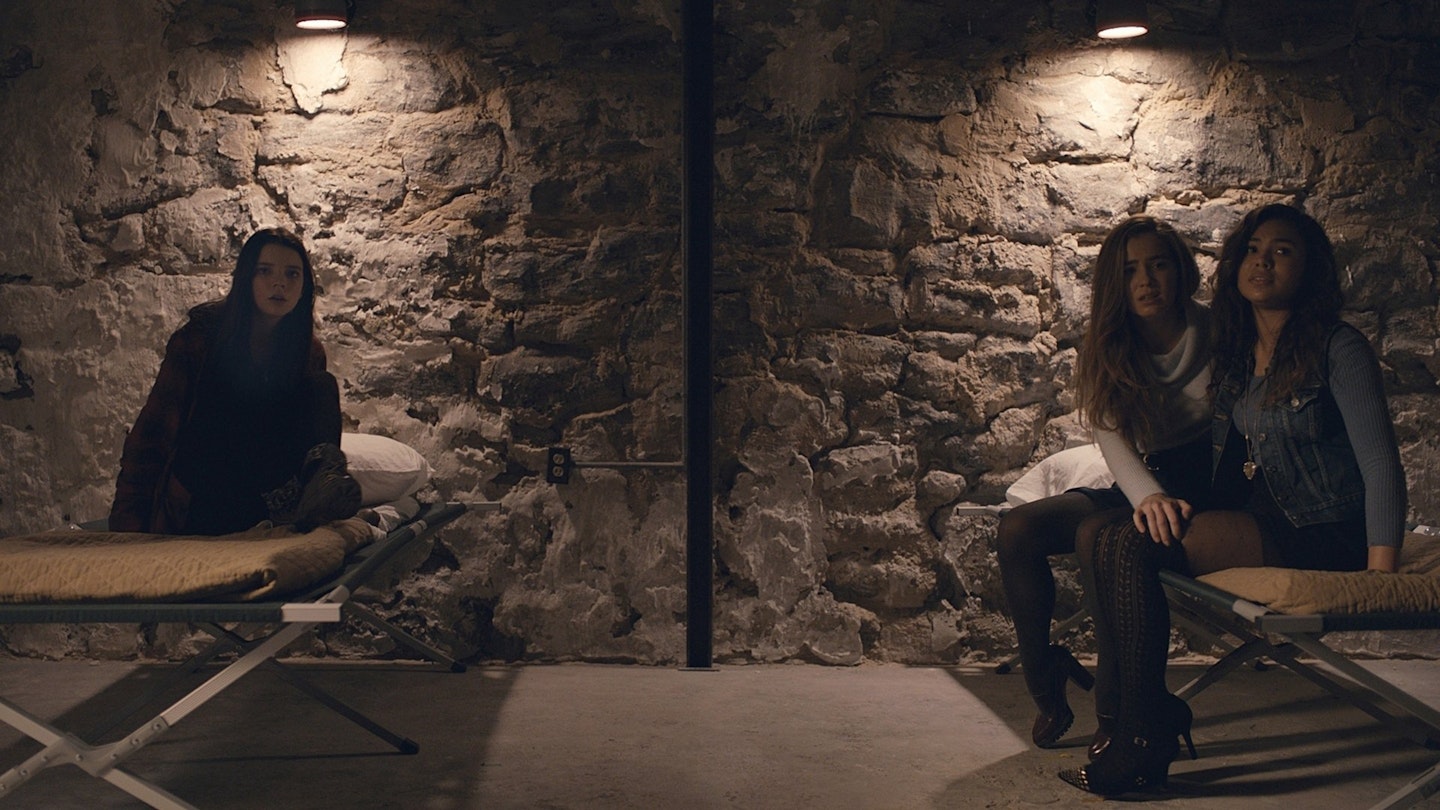
It’s all anyone does.
I know, right? But they’re the king of it. And so I guess for a while I got pulled away from that emotionally. Also, I had kids and got soft and was making family movies and movies for my kids, which is what you should do. You should make things that are emotionally relevant to you. Then they grew up. Combine that with this new film I’m doing which is smaller. I control it. I feel I can do crazy weird shit and whatever the hell I want. Your gut’s taking you in this way, to finish the Unbreakable part of it. I said, ‘what works is weird, tonal, contained movies, so what other ideas do I have? Oh, Kevin Wendell Crumb. Maybe that would be great’. I’m not a big sequel person, as you can tell. The fun of it is coming up with a new tone and a new feeling and a new approach. Could we do a movie where you watch it in one genre, a psychological thriller, but at the last moment of the movie you realise you weren’t watching that genre but another genre, in this case the origin story, the comic book origin story. You didn’t realise you were watching it. It’s basically a first act.
Were there rights issues? Split is an Universal movie. Unbreakable was Disney…
Disney was really great and sweet and accommodating and the two studios have worked really well together. That helped hide it too. I wasn’t making this movie for Disney, I was making it for Universal. Everything came together, and we’re here one week out and almost every single person that’s seen the movie has kept the secret. It was a group decision to keep the secret because they liked the movie a lot. Who could have guessed that was going to happen? We showed it in September at Fantastic Fest in Austin to 500 people. We showed it four months ahead of release. That was ballsy. If they didn’t like it, that was the end right there.
I was making family movies for my kids. Then they grew up...
What happened?
They lost their minds at the end. You should have seen the room when the music started for Unbreakable. You saw people like, [he mimes looking around]. I think they were convincing themselves it was a temp track. Then the movie finishes and [when the tag begins] it went pin-drop silence, all 500 people. And then the lady goes, ‘this is like fifteen years ago, with that guy in the wheelchair’. When she said ‘wheelchair’, you started hearing this moan. It was the weirdest thing. As she goes, ‘what was his name?’ Some people started yelling, ‘MR GLASS!’ and then she leans back and you see Bruce and that was it. You hear him go, ‘Mr Glass’, and everyone exploded. Grown men having orgasms. Then at the end I did a Q&A so I had to go to three theatres and see the reaction in each one.
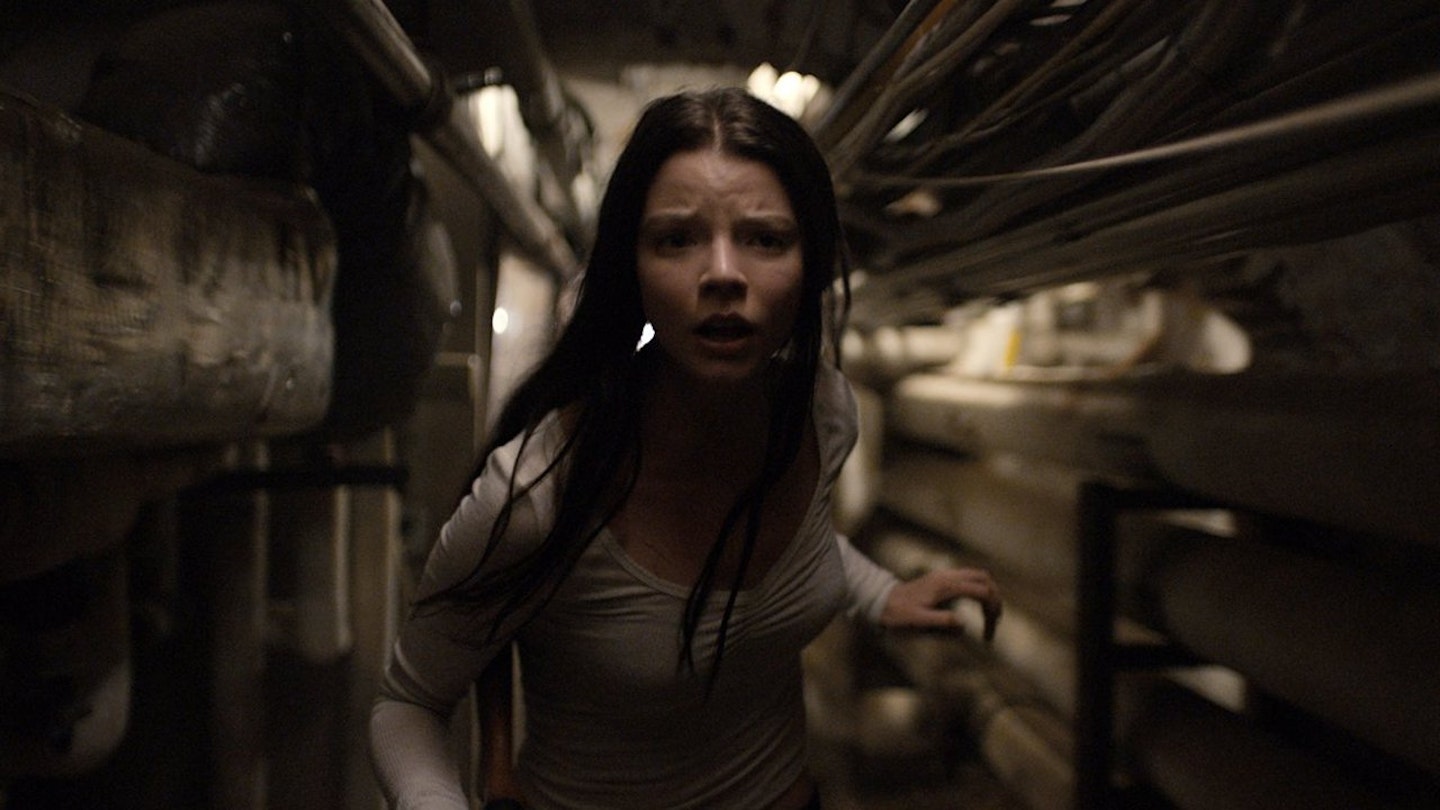
When did Bruce come on board?
Bruce and Sam have been asking me to consider doing another one for so long. I said, ‘I’ll think about it, I’ll think about it’. But you have to start from something you’re inspired by, or an idea. Even a storytelling tone. It can’t be inorganic, saying I want to do it because it’ll be successful. I was overly resistant to it, so when I called Bruce for this one, I said ‘this is what I did. I took the character I wrote that was supposed to be in Unbreakable and I’ve made it as a movie, and I’d love to have you in it at the end’. He said, ‘I’m in, I’m in’. He did it as a favour.
Well, now you’ve got to deliver. What are you doing with Unbreakable 3, or Split 2, or whatever it’s going to be called?
I’m writing the outline now. It’s weird. It’s long. It’s the longest outline I’ve ever had. It’s almost ten pages of an outline. I don’t know what that means. It’s very long. It has so many characters. It’s a weird process. I already know all the characters, or most of them. I know 80% of the characters, so the discovery process isn’t there. It’s easy to write, which I’m very suspicious about. There’s not been a lot of bloodshed yet. I hope if Split is a success, I’ll have the opportunity to finish the story. I want to finish it, so this is the third one.
In terms of Kevin’s continuing storyline, did you have all 23 personalities worked out?
I picked names. I had a sense. That’s part of the fun, maybe, of the next one, to sit down and discover some. It’s always a central question – what does Kevin need? What would be an advantage for him?
Finally, you cameo in Split as Jai and Unbreakable as Stadium Drug Dealer. As the same guy?
It’s possible. Our joke on set was that Stadium Drug Dealer had turned his life around.
Split is in cinemas now.
